Nobody is surprised to learn that campaigns cost money. Thus, why are people surprised or offended when a candidate takes donations from political action committees?
Political action committees (PACs) have been around since 1944 when the Congress of Industrial Organizations formed the first one to raise money to re-elect Franklin Delano Roosevelt. PACs are really just a way for many like-minded individuals to pool resources that give them a larger voice to promote a common message.
There are PACs on both sides of the aisle and in almost every corner of our economy, including sectors like agriculture, real estate, insurance, health care, dairy, restaurants, construction, banks and lawyers. Electric cooperatives have had a PAC since 1966. It is called the Action Committee for Rural Electrification (ACRE).
ACRE supports political candidates (Democrats and Republicans) who will speak for and protect the interests of electric co-ops and their member-owners. No electric cooperative writes a check to ACRE. All the money in the ACRE PAC comes from over 35,000 individual checks from employees, directors and cooperative members. On average, annual contributions to ACRE are $59 per individual donor.
Any member of Cherryland can donate to ACRE by calling our office. Annually, there is also an insert in your monthly bill that allows you to contribute along with the almost 3,000 cooperative member-owners who are already making a difference in legislative issues that affect their cooperative utility.
Incumbents tend to garner most of the PAC dollars. PAC dollars are limited, and incumbents typically have a track record that tells a PAC whether or not he/she will support their agenda. The dollars are merely a way for an organization to get a foot in the door in order to get their message heard.
In recent years, some politicians have made a big deal about not taking PAC dollars. When I hear this, I wonder if they are taking individual donations toward their campaign. How else would they pay for all the expenses involved with such an effort? Why is a check that represents a group of individuals considered differently from an individual check?
A corporate PAC is limited to a contribution of $5,000. Individuals can make a $5,400 contribution. So, when a candidate claims not to take PAC dollars, are they instead taking individual dollars? Are individual donations a way to get more dollars than a PAC can legally contribute? For me, the water gets murky when a candidate takes no PAC dollars.
I would bet that you could look into any given campaign’s list of individual donors and find multiple individuals from the same company or, more likely, the same industry. Think about that the next time you listen to the “no PAC money” speech.
By now, you are probably wondering what point I am trying to make. I am simply trying to point out that PACs are not a bad thing. In fact, I believe that one PAC check is more transparent than a thousand individual checks. When the PAC writes a check, it is clear what they stand for and what result they are seeking. When you see an individual name on a donor list, it is far harder to tell for what that person is advocating.
The democratic process is messy, but there is no better process. When you follow the money, it always leads you to individual choices. Contributing to any PAC is certainly an individual choice that has long been a part of a political process that serves us well.



I’m not interested in your political views on PACs or contributions. I don’t need an education on how they work. When I went to school we were educated on the process. School used to be the forum for this type of education. Cherryland emails should not be sent to me unless I’m hearing about specific issues Cherryland is working towards. I’m not interested in an editorial or personal view point of a Cherryland employee sent to my email. I find it a waste of my time and unfortunately I’m forced to read it because I belong to Cherryland and don’t know if it is important or is it another pointless view point to make the writer feel better about he/she’s work. I would like my Cherryland dollars to stick to more specific issues. If you want to write about Cherryland’s PAC and specific issues it is working towards, I would find that information worthy To read about.
If the PAC can only donate $ 5K what happens to the money left over
I’m not sure I understand the question. If a PAC gives $5,000 to one candidate, it can either sit on the remaining funds or give them to another candidate. I know our national PAC gives to dozens of legislators annually. They also carry money over from one election cycle to the next.
Who decides on who gets the money from PAC
Our statewide office that deals with the legislators on a regular basis will make a recommendation to the cooperative served by the legislator involved at the time. I also have the ability to make a recommendation to our statewide organization if I feel the need or have a specific reason.
How do you support a republican when they don’t believe in climate change
Climate change is just one issue. Electric cooperatives have many issues. Both Republicans and Democrats just helped us pass legislation that will uphold our tax exempt status and another bill that will save Michigan cooperatives $1 million per year on pension benefit guaranty insurance. If we can’t agree on a topic, we usually find other issues where we can. Ultimately, we don’t support those who don’t support us, D or R really doesn’t matter.
I find the articles very interesting and love the difference here, as opposed to when I was with Consumers Energy. Thank you, for taking the time to explain unique topics like this one.
You avoid the elephant in the room, Super PACs. They have poisoned the process.
In CO I pay a small premium for 100% renewable. When will Cherryland have a similar program?
I need to do more homework on Super PACs. As far as 100% renewable goes, Cherryland has a power supply portfolio that is over 60% carbon free today. We are trying to go even higher. So one argument I have is the fact that we are trying to get every member closer to 100% without creating additional charges many will not want to pay (and should not have to pay). I am not familiar with your specific program but most similar programs are selling renewable energy credits. Thus, you are getting the attributes for a program/solar array that is already in place rather than paying for new renewable technology/infrastructure that is adding more generation to the grid. At Cherryland, we can lease you solar panels in a community solar farm. You can lease one panel or as many panels as it takes to get your specific usage to 100% renewable. If you lease a solar panel from us, you will get the energy produced in a credit directly on your monthly bill. We feel like this is a better strategy for everyone.
I would like to know which candidate received money from cherry land this past election cycle . Thank you !
We gave to Rep Bergman, Senator Peters and Senator Stabenow in 2019. I will work on getting the specific amounts and report back later today or tomorrow.
2019 PAC contributions to federal legislators serving Cherryland’s service territory were as follows: Rep Jack Bergman – $4500, Rep John Moolenaar – $5000, Senator Gary Peters – $8500, and Senator Stabenow – $5,000
The road to purgatory is paved with good intentions. The fact that PACs started on the behest of FDR & the political machine he developed over his 3+ terms in office does not vindicate their existence. There can be legitimate reasons for having a group’s voice heard in the halls of our secluded governments hold up in Washington DC or each individual State’s capital. The issue really boils down to having rules to follow and legitimate means to enforce those rules. My view is that the process is failing, at this time. Money creates a false narrative with today’s electoral system which then leads to further corrupted control of our democracy in making decisions for the people this government is designed to represent. Without rules & enforcement of those rules, PACs breed corruption and the purest ideas or ideals can lead/ have led to misrepresentation. Let’s just say the risks have outweighed the benefits to date, from my viewpoint.
I feel all this points to the need for term limits in all forms of Government to do away with career politicians. The way things are going these politicians really don’t care that much about the average person anymore its about themselves and the money they can put away.
I appreciate you taking the time to comment but I have to respectfully disagree. When we have term limits, in my opinion, it restricts and constrains our democracy by reducing who the voter can select in the ballot box. When voters can’t vote for anyone they choose, it waters down the democratic process.
Here is a link to a pretty good explanation of PACS and Super PACS I found and what their requirements and limitations are. The Super PACS are really the problem for me at it allows unlimited donations to be made to support a specific candidate or to defeat one. This obviously allows the rich and powerful in this country to have extreme undue influence on our politics that I believe has had very negative effects on our country. The numbers are a little outdated here as far as individual contributions a person can make directly to a candidate. The limit is now $2,800. Individual contributions to PACs not for a specific candidate are limited to $5,000 just like the corporate limit though. I believe the $5,400 figure you gave is incorrect.
https://www.opensecrets.org/overview/limits.php
Ooops! Although the link I posted was informative too this is the actual link about PACS.
https://sunlightfoundation.com/2016/04/21/arent-there-limits-on-campaign-contributions-and-other-questions-youre-too-embarrassed-to-ask/